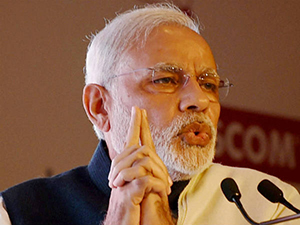New Delhi, Jul 13: Opposition today hit out at the Modi government over the Supreme Court's verdict on Arunachal Pradesh with Congress President Sonia Gandhi saying it will deter it from "misuse of power" and AAP chief Arvind Kejriwal calling the order a "tight slap" on its "dictatorial tendencies".
Congress also demanded the immediate sacking of Governor Jyoti Prasad Rajkhowa and demanded an apology from all those involved in the decision of toppling the government.
Government said it will do a "structured examination" of the order and its implications before making a detailed response.
Putting up a brave front, BJP tried to deflect the criticism saying the political crisis in the state was an outcome of Congress' internal fight and claimed that the order is not a setback to the party.
Top Congress leaders Sonia and Rahul Gandhi targeted Prime Minister Narendra Modi with the party president asserting that those who trampled upon constitutional propriety and democratic norms stand defeated today.
Rahul Gandhi took a dig at Modi as he thanked the apex court for "explaining to him (PM) what democracy is".
"Those who had trampled upon constitutional propriety and democratic norms have been defeated today. This judgement, that firmly establishes the democratic values enshrined in our constitution, will deter the Union Government from any further misuse of power," Sonia said in a statement.
She also welcomed the "historic" verdict reinstating the "democratically elected and unconstitutionally removed" government.
Former Chief Minister and Congress leader Nabam Tuki, whose government was dismissed, said the order has protected democracy and ensured that justice prevails.
"It paves the way to protect healthy democracy in the country," Tuki said.
Delhi Chief Minister and AAP chief Arvind Kejriwal also hit out at the government.
"SC judgement is yet another tight slap on dictatorial Modi govt. Hope Modi ji would learn and now stop interfering in democratically elected governments," Kejriwal tweeted.
The apex court ordered that status quo ante that prevailed on December 15, 2015 be restored in Arunachal Pradesh Assembly.
The judgement is seen as a major setback to the central government and the BJP, which is extending outside support to the Pul government.
Trying to play down the impact on BJP, party's national secretary Shrikant Sharma said,"What happened in Arunachal was an outcome of internal fight within Congress. Its government was reduced to minority after a faction within the party rebelled. We only supported the faction's bid for power from the outside. Congress should not blame us for its internal problems.
"Rahul Gandhi is talking about democracy but he should know that past Congress governments have made a century of the use of Article 356 (of the Constitution) to dismiss state governments."
Uttarakhand Chief Minister Harish Rawat, who had also got relief from the apex court, lauded the verdict.
"My heartfelt gratitude to the Supreme Court for restoring Cong government in Arunachal Pradesh. Judiciary has restored faith of people in democracy," Rawat said in a social media post.





Comments
Add new comment